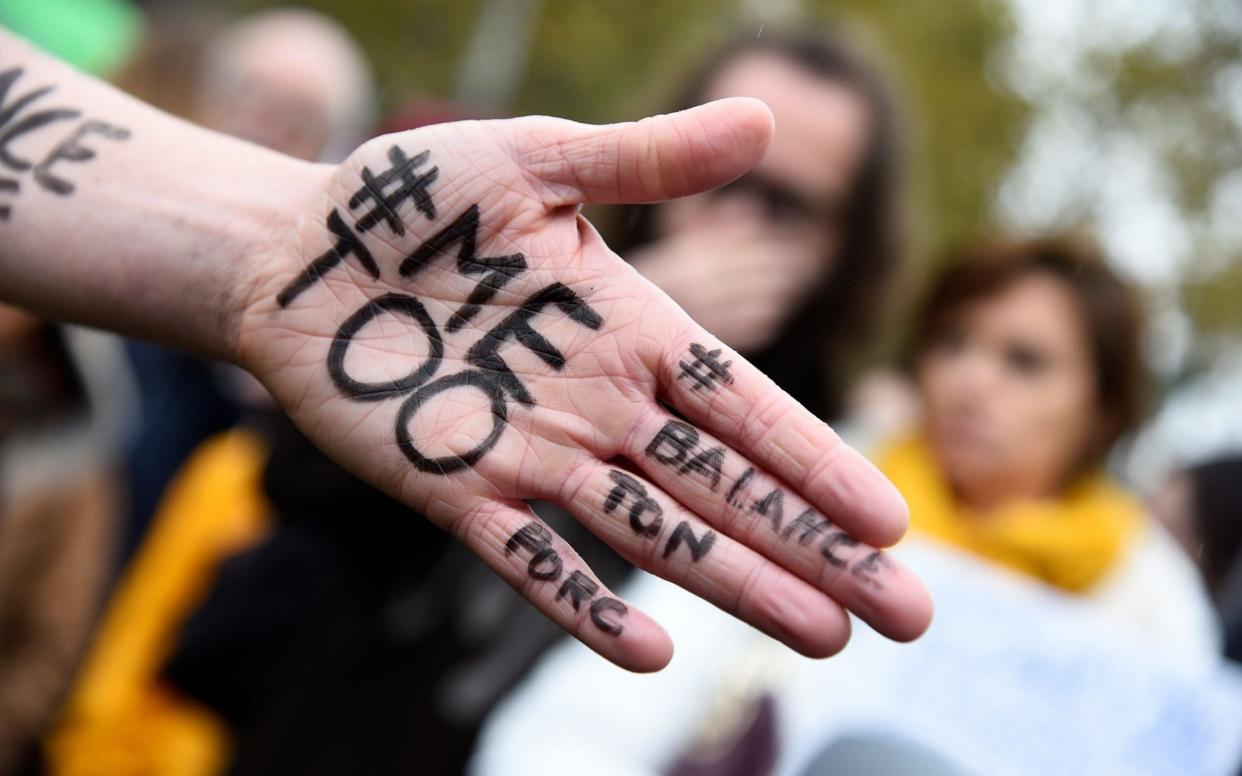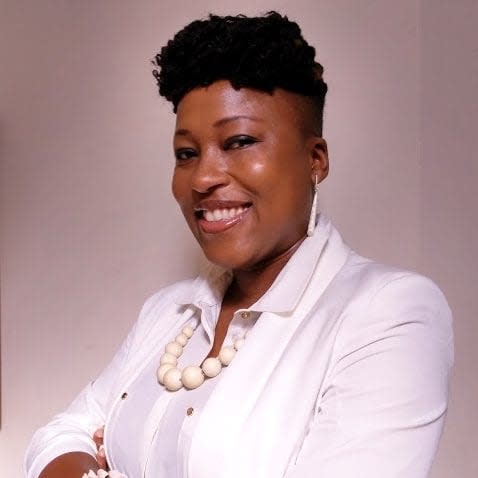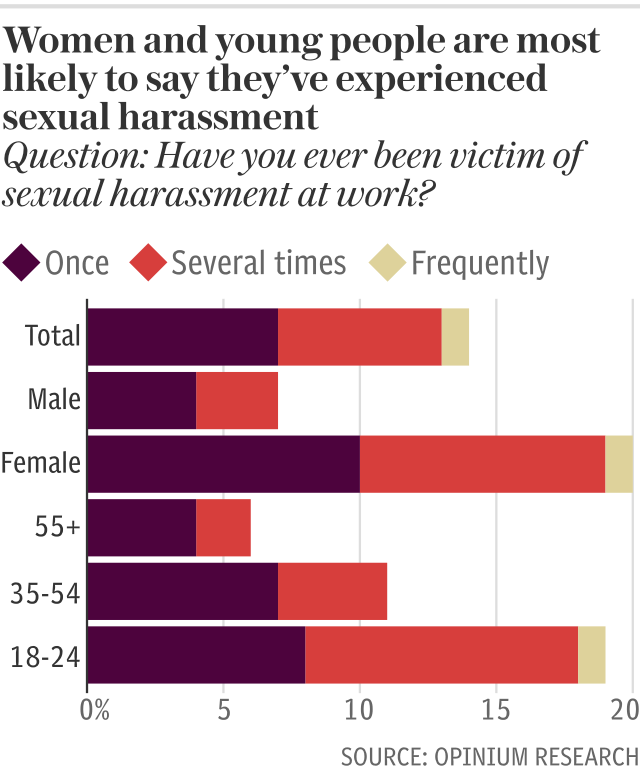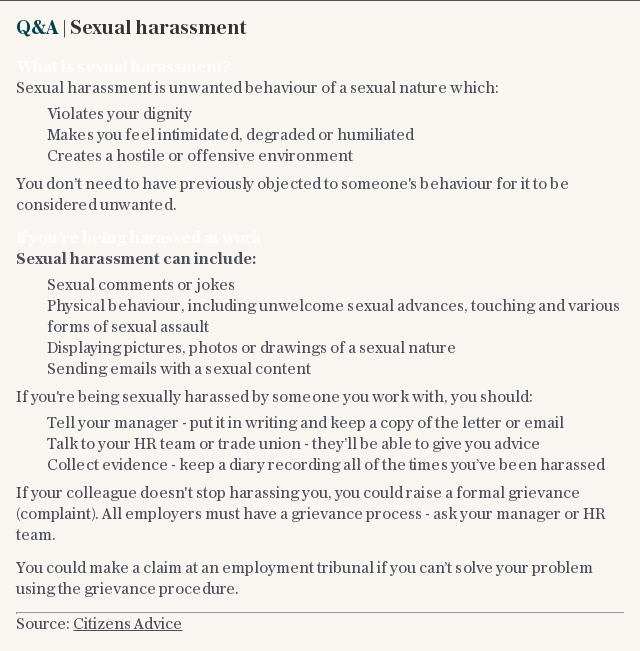The question we need to ask post #MeToo: Are workplaces enabling sexual harassment?

In the wake of the #MeToo and #TimesUp campaigns, which have seen women across all industries and sectors speak up about workplace sexual harassment, we have some difficult questions to ask. Chief among them is the role that employers must play in handling these.
For many victims, the poor handling of complaints has led to their resignation, or they have been forced out of employment.
#MeToo and #TimesUp have had a tangible impact - turning the tide in favour of victims and against perpetrators. More important, has been the outcry against institutions that appear to cover up incidents of sexual harassment that took place in their organisations.
Here, Dr Shola Mos-Shogbamimu, lawyer, co-organiser of the Women’s March London and editor and founder of the Women in Leadership publication sets out the case and speaks to leading female voices for their next steps...
Why must sexual harassment be tackled?
“Harassment is not episodic or the result of a few ‘bad apples’, but part of the spectrum of violence against women and girls,” says Sophie Walker, Leader of the Women’s Equality Party. “The sooner institutions understand this, the sooner they can start doing the work needed to end it and other forms of violence against women and girls.”

UK Black Pride co-founder, Phyll Opoku-Gyimah, also wants this tackled. “Sexual harassment, abuse and imbalances of power exist in all aspects of society,” she says. “We need to campaign against institutional sexual discrimination because every woman should be safe within their schools, universities and workplace. This should be about changing our culture.”
This view is also shared by film maker Gulrukh Khan, who says 'it is key to tackle sexual harassment at an institutional level, because the earlier it's prevented here - the earlier we can prevent harassment from turning into full blown sexual abuse within and outside institutions”.
Do institutions owe a duty of care?
The public denouncement of high profile celebrities has forced institutions to fire big names such as Harvey Weinstein and Kevin Spacey. In the UK, it has led to forced resignations from senior public officials such as Michael Fallon, Secretary of State for Defence.
There is now a visible demand for accountability where organisations and companies fall short. Human Rights Lawyer, Jacque Onalo says that “institutions must execute their duty of care by promoting and creating a culture of zero tolerance to sexual harassment. An environment conducive for challenging, reporting, investigating and penalising efficiently and effectively this menace.”

What more can be done to set transparent and best practices?
International women’s rights activist, Helen Pankhurst, explains that “institutional sexual harassment continues to plague the lives of too many women right across the globe and the most vulnerable and poorest women in society are those who find it most difficult and dangerous to call it out.
“The historically entrenched culture of permissiveness needs to be swept away and systems of accountability by institutions and Government have a role to play.”
She is pushing for more action to be taken and explains that “the International Labour Organisation is considering a global convention to end violence and sexual harassment at work which, if brought into law, would provide a framework for prevention, protection and redress. “The eradication of sexual harassment at work is possible but it requires commitment and global leadership. We need this now.”

Fawcett Society CEO, Sam Smethers, expands on the findings of the its sex discrimination law review: “We recommend strengthening the law to ensure women are protected from harassment by clients, customers and co-workers and extend the time-limit to bring a claim,” she says. “We also concluded that we need to go further and place a duty on large employers to prevent harassment and discrimination. We need to both do more to give women access to justice and also place greater responsibility on organisations to prevent it happening in the first place.”
What are your views on institutional sexual harassment?
Share your opinions by completing this anonymous poll of six questions run by the Inclusion Convention think tank to engage in the discourse addressing this issue here.
Data collated from the poll will be used at the Institutional Sexual Harassment conference on Thursday 22 March. More information can be found here.


